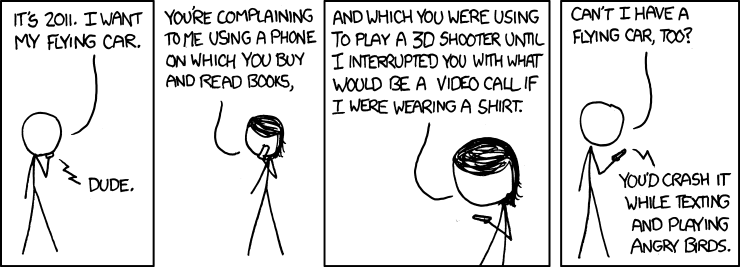I just started reading a non-fiction book I found reviewed in The Economist, called Triumph of the City: How Our Greatest Invention Makes Us Richer, Smarter, Greener, Healthier, and Happier by Edward Glaeser. (Full disclosure: there is a large chapter about the decline of Detroit, but that was just more synchronocity, not the reason I picked it up.)
His argument is that cities, rather than creating poverty and crushing inhabitants -- which is, frankly, what it does feel like sometimes -- attract the poor and help inhabitants by making it easier for people to be productive. Even in a world where outsourcing is becoming the norm, we benefit so much more from personal human interaction than when we're typing on our computers at home.
That's all fine, but the reason I mention it is because I was lying in bed last night reading the following passage about the role of publishing:
"Yeah!" I thought to myself. "Books are awesome!"
Then I realized: here I was, feeling very proud about my profession's press and paper contribution to history and society, and yet I was reading these words off of the screen of my little e-ink Kindle.
Wow.
Makes you think, huh?
His argument is that cities, rather than creating poverty and crushing inhabitants -- which is, frankly, what it does feel like sometimes -- attract the poor and help inhabitants by making it easier for people to be productive. Even in a world where outsourcing is becoming the norm, we benefit so much more from personal human interaction than when we're typing on our computers at home.
That's all fine, but the reason I mention it is because I was lying in bed last night reading the following passage about the role of publishing:
[. . .] The book didn't help cities just by boosting their publishing industries. The printed word also made the world more urban in subtler, deeper ways. One direct effect of the printing press was allowing far-flung farmers to read the Bible, but indirectly the printing press helped make the world more knowledge intensive, more democratic, more commercial, and ultimately more urban.
"Yeah!" I thought to myself. "Books are awesome!"
Then I realized: here I was, feeling very proud about my profession's press and paper contribution to history and society, and yet I was reading these words off of the screen of my little e-ink Kindle.
Wow.
Makes you think, huh?
 |
| [Comic gratefully borrowed from xkcd] |
No comments:
Post a Comment